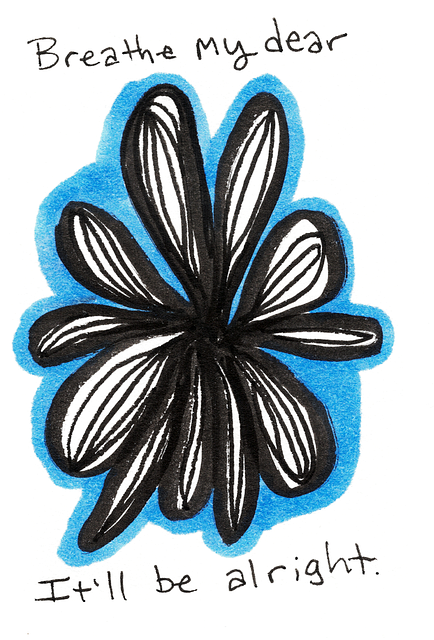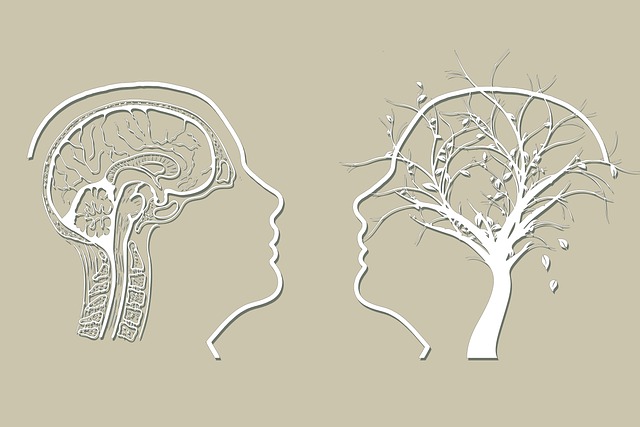Arvada Blended Families Therapy leverages community outreach programs, incorporating holistic strategies like Mindfulness Meditation and Mental Health Education, to address unique family dynamics and cultural complexities. Using evidence-based practices such as Cognitive Behavioral Therapy (CBT), the program offers tailored interventions including individual therapy, joint counseling, and group activities. Success is measured through KPIs focusing on increased access to mental health resources, improved family functioning, and emotional intelligence, while collecting qualitative/quantitative data to ensure ongoing adaptation to community needs.
Community outreach programs play a pivotal role in enhancing family therapy services, especially in diverse communities like Arvada. This article delves into the significance and implementation strategies of such programs, focusing on the innovative approach of Arvada Blended Families Therapy. We explore best practices for successful integration and measurement of impact, highlighting how these initiatives foster stronger, healthier families. By understanding the value of outreach, we can revolutionize family therapy accessibility and outcomes.
- Understanding Community Outreach Programs: Their Role in Family Therapy
- Implementing Arvada Blended Families Therapy: Strategies and Best Practices
- Measuring Success: Evaluating the Impact of Community Outreach Programs in Family Therapy Services
Understanding Community Outreach Programs: Their Role in Family Therapy

Community outreach programs play a pivotal role in Family Therapy, particularly in diverse settings like Arvada Blended Families Therapy. These initiatives are designed to bridge the gap between therapists and families who may face barriers to accessing traditional therapy services. By taking therapy directly to communities, therapists can provide much-needed support to families dealing with various challenges, including blended family dynamics, cultural complexities, and socioeconomic issues.
Incorporating strategies like Mindfulness Meditation and Mental Health Education Programs Design into community outreach allows for holistic emotional healing processes. These programs not only address immediate concerns but also equip families with valuable skills to navigate life’s stresses and strengthen their bonds. The impact of such initiatives is profound, fostering resilience and promoting healthier relationships within the community.
Implementing Arvada Blended Families Therapy: Strategies and Best Practices

Implementing Arvada Blended Families Therapy requires a strategic and holistic approach to address the unique needs of blended families. The first step involves assessing each family’s dynamics, identifying areas where support is needed, and tailoring interventions accordingly. This might include individual therapy sessions for parents, joint family counseling to improve communication, and group activities that foster bonding and strengthen relationships. Incorporating evidence-based practices like Cognitive Behavioral Therapy (CBT) can help families manage stress, overcome challenges, and enhance emotional intelligence.
To ensure the success of Arvada Blended Families Therapy, best practices include promoting active engagement from all family members, creating a safe and non-judgmental environment, and incorporating confidence-boosting techniques to encourage open communication. Regular feedback loops should be established to gauge progress and make necessary adjustments. By combining these strategies with emotional well-being promotion techniques, the program can help blended families navigate complexities, build resilience, and thrive in their new configurations.
Measuring Success: Evaluating the Impact of Community Outreach Programs in Family Therapy Services

Measuring success is a vital aspect of evaluating the impact and effectiveness of community outreach programs in family therapy services, especially when focusing on diverse populations like Arvada Blended Families Therapy. The success of such initiatives can be assessed by tracking key performance indicators (KPIs) that align with the program’s goals. These might include increased access to mental health resources within the community, improved family functioning, and enhanced emotional intelligence among participants.
By incorporating strategies such as self-care practices and self-awareness exercises, therapists can gather qualitative and quantitative data to gauge the overall impact. Regular feedback from families involved in the program, improvements in communication patterns within households, and enhanced coping mechanisms are all indicators of successful outreach. These evaluations ensure that Arvada Blended Families Therapy remains responsive to the unique needs of its community and adapts its approach accordingly.
Community outreach programs, such as Arvada Blended Families Therapy, play a pivotal role in enhancing family therapy services. By implementing targeted strategies and best practices, these programs can significantly improve access to care and positively impact families across diverse communities. Measuring success through rigorous evaluation ensures that efforts are effective and adaptable, ultimately fostering stronger, healthier family dynamics. This integrated approach not only benefits individual families but also contributes to a more supportive and connected community as a whole.














